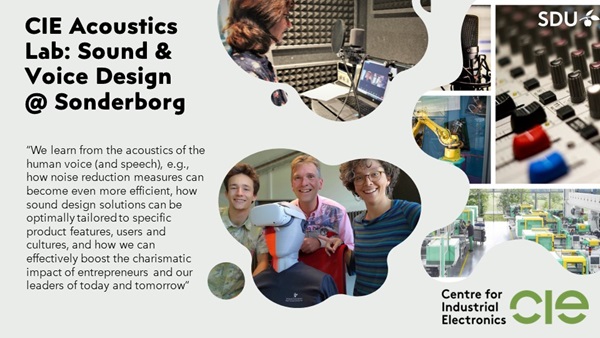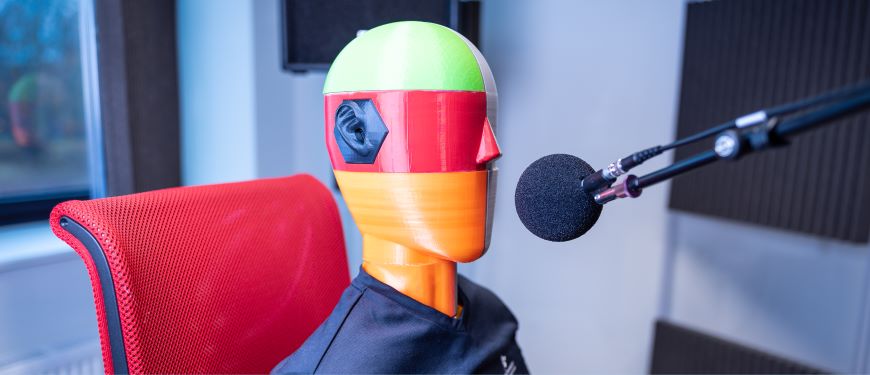People think of Digitalization and "Industry 4.0" mainly in terms of autonomous machines, collaborative robots, and the internet of things. But there is more to it! From the angle of acoustics, these two terms mean nothing but a whole new dimension of communication that manifests itself, e.g., in virtual teams, mobile workplaces, video meetings, human-machine interaction and, in most of these cases, speech communication in noise.
New types of teams and new means of digital communication place new demands on leadership, presentation and negotiation skills, and offer new perspectives for boosting the innovative power of companies. The close collaboration of humans and machines poses new challenges for speech synthesis, speech recognition, and sound design as well as for smart approaches to noise and related health issues.

Research scope
Our R&D activities are highly application-oriented and interdisciplinary. Sound is everywhere, and so must be innovations of sound. Within this conceptual framework, we focus particularly on noise, sound design, digital communication, and digital leadership training. At the heart of our work is the signal that represents the oldest acoustic means of communication among human beings and that is still very directly linked to the ancient emotion and decision-making areas inside our brains: the human voice. That is, we try to learn from the acoustics of the human voice (and speech), e.g., how noise reduction measures can become even more efficient, how sound design solutions can be optimally tailored to specific product features, users and cultures, and how we can effectively boost the charismatic impact of entrepreneurs and our leaders of today and tomorrow (the latter activities take place within the SDU spin-out company AllGoodSpeakers ApS).
Research topics
- Human-machine/robot interaction (synthesis and recognition of speech, emotions, etc.)
- Human-human interaction (e.g., speech enhancement, digital communication tools)
- Noise analysis and reduction
- Sound design of machines, products, and robots
- Stimulation of creativity and innovation (esp. public-speaker and leadership assessment and training based on Acoustic Voice Profiling®)
-
Oliver Niebuhr (Assoc. Prof., Dr. phil., Group leader)
-
Ïo Valls-Ratés (Postdoc)
-
Charlotte Fooks (Research Assistant)
-
Rongjie Shi (Research Assistant)
Projects
Find selected projects here:
- VirtuVoce – Spin-outs Denmark (spinouts.dk), Read more
- Arrowhead flexible Production Value Network (fPVN), Read more
- HospiBot (Interreg DK/DE), Read more
- FKK-funded project on " Improving Second Language Pedagogy at the Prosody-Pragmatics Interface Using Human-Robot Interaction, Read more
- Velux-funded research project on Hate Speech, Read more
- DFF-funded international project on Exploring a new technology for measuring speech rhythm: The cross-linguistic testing, fine-tuning, and application of the MARRYS helmet.
- Persuasiveness & Creativity (PERCY), Read more
Press/Media presence (selection)
